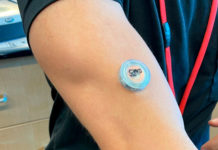Of all the foods that are used by people, alcohol leads to addiction most often. There is a direct link between alcohol addiction and liver damage. Excessive use of alcohol causes the development of alcoholic liver disease sooner or later.
Why Is Alcohol Dangerous for the Liver?
Alcoholic liver disease is manifested in three main forms – steatosis, hepatitis and cirrhosis. Alcohol is a direct hepatotoxic agent, and its safe and dangerous doses were determined long ago. However, no one can tell you how much you can drink not to damage liver.
How Much Alcohol Leads to Alcoholic Liver Disease?
Many researchers believe that taking 40-80 grams of ethanol per day for ten to twelve years causes the risk of alcoholic liver disease. About a half of those who consume alcohol in dangerous doses suffer from severe liver disease – cirrhosis and hepatitis B. This indicates that the pathogenesis of the alcoholic disease involves hereditary factors and environmental impact, except the direct toxic effect of ethanol. The peculiarities of the alcoholic liver disease are as follows:
- the disease occurs due to various violations of the functional capacity and structure of the body – because of prolonged and regular use of alcoholic drinks;
- alcoholic liver disease goes second in terms of distribution and social value (after acute and chronic liver diseases of viral etiology);
- there is a clear link of pathological changes in the body, the dose of alcohol and the duration of its use;
- alcoholic liver damage in the early stages is reversible;
- no method of treatment is effective if the use of alcohol is continued.
Alcoholic Liver Disease Symptoms
- heaviness in the right upper ubdominal quadrant;
- biochemical liver function tests demonstrate no changes;
- liver is increased;
- the gastrointestinal tract is affected;
- heartburn occurs due to inflammation of the esophagus;
- a rupture of the esophagus;
- bleeding;
- gastritis;
- gastric ulcer and duodenal ulcer;
- the pancreas is damaged;
- frequent diarrhea;
- severe acute pancreatitis, which should be treated surgically;
- abdominal pain;
- brain is involved;
- degeneration of the nervous system;
- disruption of the functioning of the peripheral nervous system;
- numbness;
- disturbed sensation in the limbs;
- the heart is affected;
- increased blood pressure;
- heart failure symptoms are possible;
- disrupted skeletal muscle performance;
- modifications of red blood cells;
- changes of skin;
- a peculiar alcoholic ornament.
Even if the liver damage occurs implicitly and the patient denies alcohol addiction, a physician can diagnose the symptoms of chronic alcoholic disease correctly.
Alcoholic Hepatitis Treatment
The main and most effective method of treatment of alcoholic liver disease is to completely stop taking alcohol. Avoiding alcohol at the stage of fatty liver dystrophy will fully restore the size and structure of the liver. In case of severe acute alcoholic hepatitis, hormones and the following medications are prescribed:
corticosteroids (in case of severe alcoholic hepatitis);
anabolic steroids;
insulin, etc.
An essential part of the treatment is the treatment of deficiency of vitamins and minerals and a complete balanced diet.






